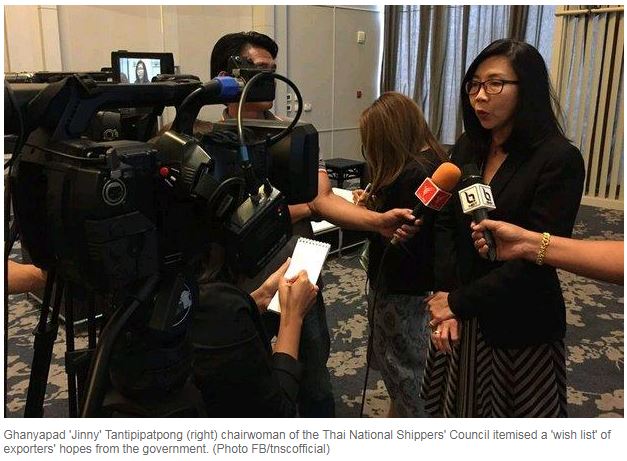Thailand: Exporters hope next regime steadies baht
Exporters are proposing that the next government stabilise the baht to be in line with the currencies of regional and trading partners, beef up market diversification and speed up trade talks to retain export growth this year.
Ghanyapad Tantipipatpong, chairwoman of the Thai National Shippers’ Council, said the continuous appreciation of the baht is the key area of concern for exporters, warning that a strong baht, if left unchecked, could derail export growth targets.
“The new government must closely supervise the baht so it is more stable, moving in line with trading partners and key competitors,” Ms Ghanyapad said. “Exporters, especially small and mid-sized ones, need to carefully manage their foreign exchange risk to prevent any impact to their export costs.”
She said a strong baht hurts competitiveness for export products, which are heavily reliant on local content in the manufacturing process.
“Every one-baht gain against the US dollar is estimated to dent the country’s export growth by 1%,” Ms Ghanyapad said. “If the currency stands firm at 31 baht to the greenback throughout the year, the country’s export growth will be just 3% at year-end.”
The council is maintaining its export growth forecast at 5% this year, while allowing that there could be a revision after the first quarter.
Ms Ghanyapad said the next government should also step up trade missions and fair trade in order to open new markets or diversify export markets to offset the negative impact of the world’s economic uncertainties and ongoing trade spat.
Meanwhile, exporters have proposed the new government rev up free-trade agreement (FTA) negotiations to compensate for the possible rejection of the Generalised System of Preferences by several developed countries.
FTAs both on a bilateral and multilateral basis, such as the Thai-EU FTA, the Thai-UK FTA, the Regional Comprehensive Economic Partnership and the Comprehensive and Progressive Agreement for Trans-Pacific Partnership, will become instrumental in supporting Thai entrepreneurs to export more to trading partners that gradually cut tariff preferences for Thai exports.
Customs-cleared exports fell for a third straight month in January, dragged by the global economic slowdown, the US-China trade war and the strong baht.
Thailand’s outbound shipments contracted 5.7% year-on-year in January to UScopy8.9 billion.
Exports in baht terms fell by 5.7% year-on-year to 616 billion baht.
Import value in January rose 14% to $23 billion, resulting in a trade deficit of $4.03 billion, the highest since January 2013.
Source: https://www.bangkokpost.com/business/news/1639876/exporters-hope-next-regime-steadies-baht


 English
English




